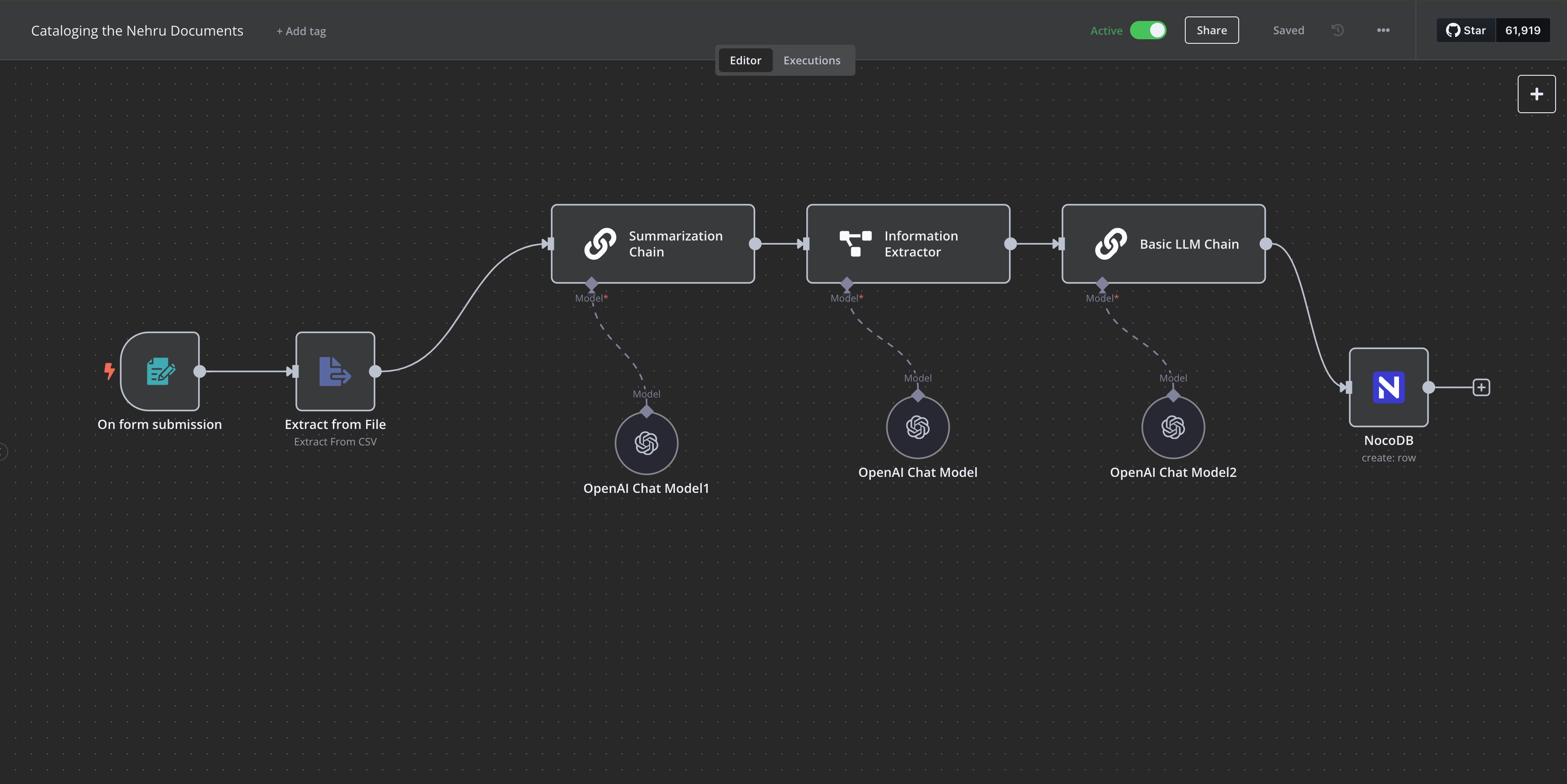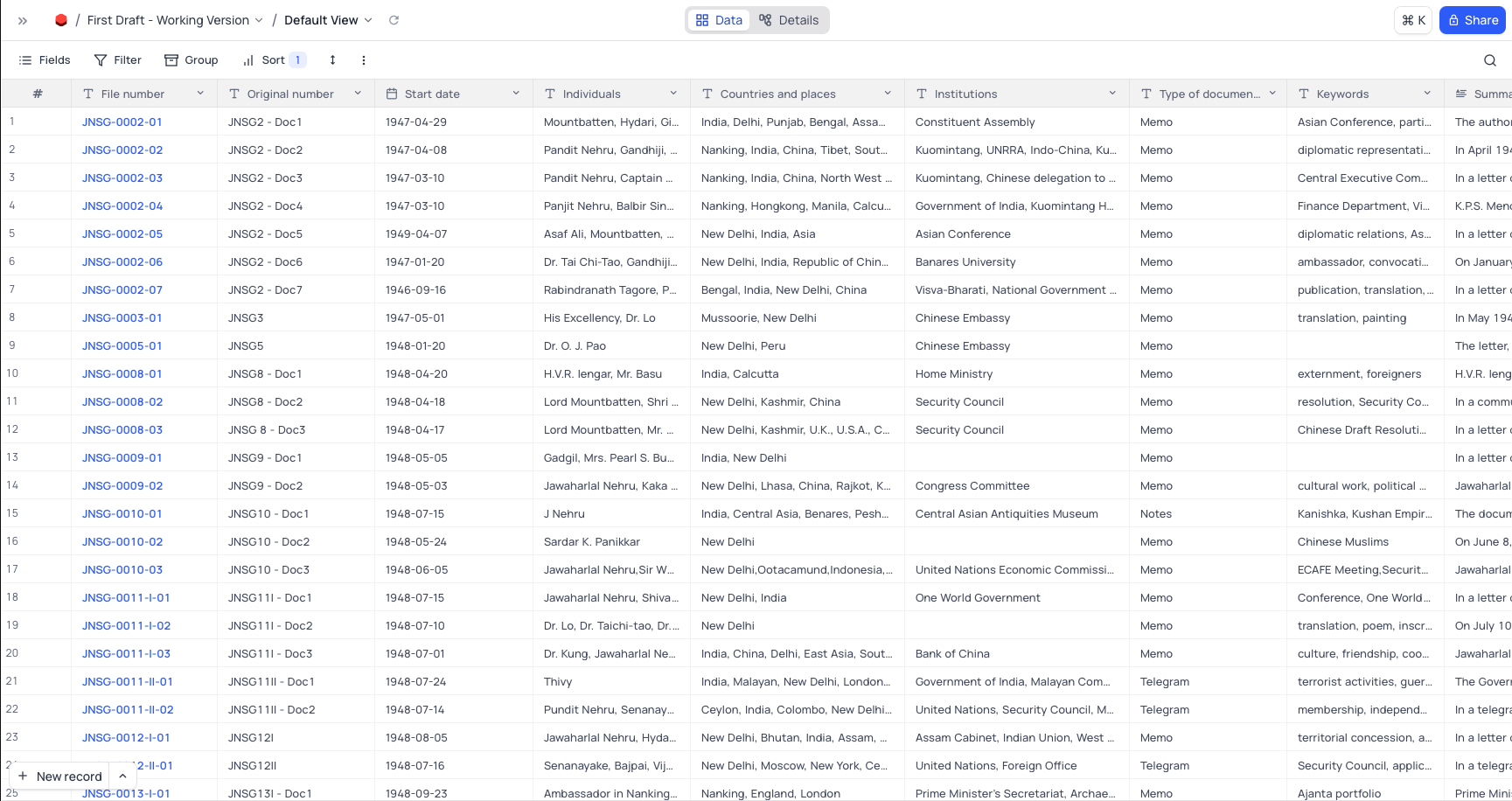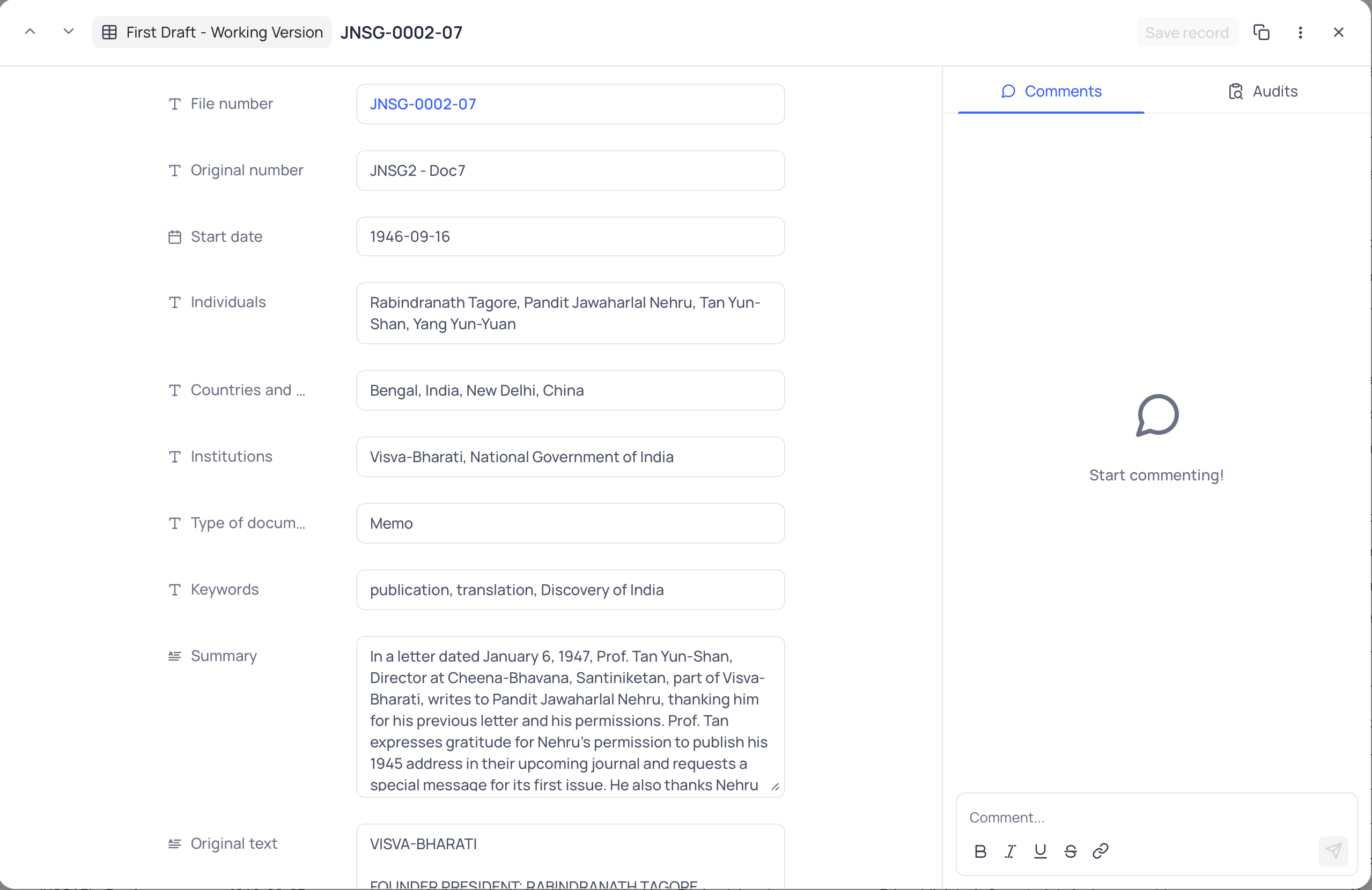GenAI for Databases
Digital China Initiative, Harvard University
2025-02-21
Digital China Initiative
- An initiative of Harvard University to prompt digital tools and methods for Chinese Studies.
- PIs: Prof. Peter Bol and Prof. Michael Szonyi
- Provide support to Harvard faculty, students, and researchers in Chinese Studies.
The GenAI Turn
- In 2022, the release of ChatGPT (and other Large Language Models, LLMs) has brought generative AI turn to the usage of digital tools and methods in Chinese Studies.
- In April 2023, CBDB and DCI held the first GenAI workshop for Chinese Studies and humanties at Harvard University.
- We decided that our future projects should incline to the GenAI approach.
- DCI has hosted a series of GenAI workshops for Chinese Studies since 2023.
Projects Involving GenAI
Nehru Papers
- This is a NEH project that led by Tansen Sen (NYU), Gal Gvili (McGill), and Arunabh Ghosh (Harvard).
- It is a project supported by Digital China Initiative.
- The project has to digitize documents collected from the Indian archives which are related to Sino-Indian relations during the 60s and 70s.
- In this stage, we are focusing on creating a catalog for the documents (~50K+?).
Nehru Papers
Data Extraction Workflow

Reviewing First Draft

Collaborating

Standardization

Next Steps
- The current experiment are limited to 3000 English documents.
- We hope that we will have a few dictionaries (code tables) for entities after expert review.
- Building an API for evaluating and standardizing the extracted entities.
- Import the data into two databases: the NYU Shanghai China-India database and the Woodrow Wilson Center database.
Digital China Worldwide Chatbot
- The project was directory project that orginated at the Tools of Trade: the Way Forward conference (hosted by DCI) in 2022.
- The project seems to be overlapping with the ACLS China Studies Digital Mapping Project.
- We decided to make the project as a RAG-based chatbot. Besides our original directory, we also include the data from the China Studies Digital Mapping Project.
- You can access the first version here: https://dcw.hudci.org
Digital China Worldwide Chatbot
- Tech stacks (current version)
- Qdrant for vector database
- Chanlit for interface
- OpenAI gpt-4o-mini model
- Nocodb for data storage and collaboration
- Tech stacks (future version)
- Qdrant for vector database
- Flowise for chat workflow
- n8n for api and interface (integrate with Slack and other tools)
- Nocodb for data storage and collaboration
- Scraping machanism
Monitoring GenAI Applications
- LiteLLM: https://litellm.ai/
- Monitoring the usage of LLM APIs.
- Creating API keys for different projects, people, and apps.
- Langfuse: https://langfuse.com/
- Monitoring GenAI applications.
- Recording tokens usage, model cost and other metrics.
Challenges
- The cost for building a GenAI apps are different from “traditional” databases and platforms. Every actions (e.g., query, update, delete) will cost tokens/money.
- Building and maintaining approaches. For example, fine-tune models vs. RAG or Agentic?
- Rapid development of all aspect of GenAI. How to build in a flexible way?